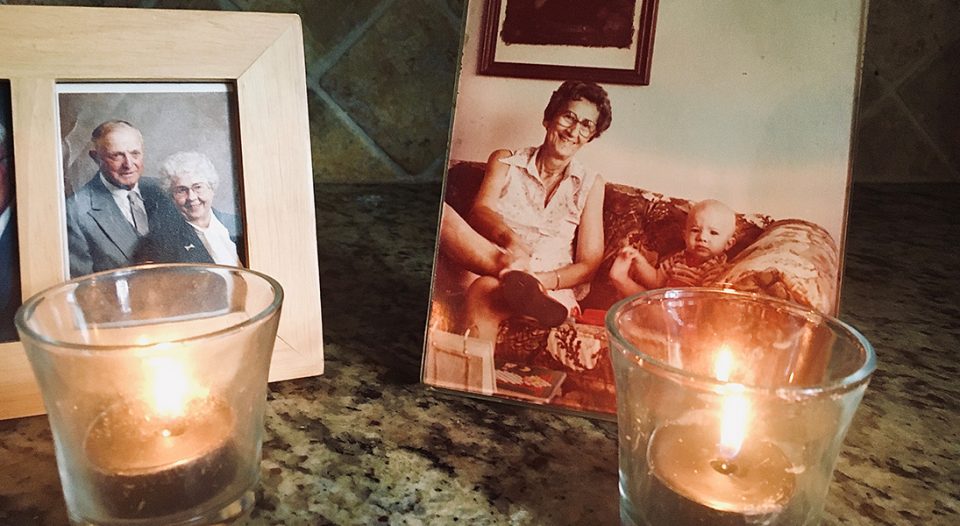When I was a parish pastor, I always felt especially blessed to celebrate a festival day when it fell on a Sunday. This is one of those years for one of my favorite festivals: All Saints Day.
All Saints Day (Nov. 1) and All Souls Day (Nov. 2) are ancient feast days in the history of the church. A day for commemorating the faithfully departed has dotted the liturgical calendar from early on in Christian history, but originally it was probably celebrated early in the spring, on the heels of Easter. As Christianity spread to people with pre-Christian ideas, All Saints Day was scheduled directly after All Hallow’s Eve to meld with other pagan festivals in other lands.
In Roman Catholic, Anglican and Orthodox communities, All Saints Day is reserved for those recognized and formally canonized by the church as having led exceptional lives. All Souls Day, then, is a day reserved for honoring any of the faithfully departed.
We Lutherans, with our penchant for blurring the line between sinner and saint, usually observe both festivals together, honoring the whole communion of saints who surround us as a cloud of witnesses—those canonized and those just held in our hearts and picture albums. Remember, when we honor the faithfully departed, even more so we honor the God who has trampled death. God is the focus of every All Saints Day celebration, and the lives of the departed are lenses through which we can see God’s love in action.
Many Christians throughout the United States won’t find themselves within a sanctuary this Nov. 1, but there are many meaningful ways to observe All Saints Day at home. Here are five of them.
Pictures and candles
When I was a parish pastor, we’d encourage everyone to bring in photos of people in their lives who had passed on, to display on tables and steps around the sanctuary. In front of each photo, we’d light a small votive candle, illuminating the face in the photo throughout the service as a symbol of the light they were in life and the light they shine even now.
Purchase small votive candles and, while you’re attending worship (by whatever means are available), light the candles to commemorate those who have gone before. These candles can be relit during meals or during a time devoted to remembering those who have died as you look through family albums, read old letters or watch home movies.
Food and familiar smells
My grandmother made the best fried chicken. I can still picture her standing over the cast iron skillet (which I now own), frying chicken carefully, timing it by sight and smell. She never used a clock for anything; she just knew in her gut when things were ready.
Use All Saints Day to make a favorite meal once cooked by someone whom you love but who is no longer with you. With children or other family members, go through an old cookbook and seek out recipes. With your family, make a meal from your childhood and reminisce with the smells and tastes.
Stories and songs
Did your parents or grandparents have a favorite genre of music? Was there a story told at every family gathering? Today is the perfect day to listen intentionally to that music or pass along that family lore to children, partners or anyone willing to hold the space and the day with you. Laugh and cry along to those words that moved your ancestors.
All Saints Day is also a wonderful day to search the web for spiritual songs of the church that have passed the test of time. “For All the Saints” (Evangelical Lutheran Worship 422) is a standard offering, but “Faith of Our Fathers” (ELW 813) and “For All the Faithful Women” (ELW 419) are also excellent choices.
Saintly study
Take the day to do a little research on a saint. Popular saints such as Saint Francis, Saint Clare or Saint Julian of Norwich are wonderful options, but if you’re open to learning about someone you may not know much about, Saint Kevin of Glendalough, Saint Moses the Black and Saint Lily of the Mohawks are sure to fill your spirit and imagination with new inspiration.
There are saints from every heritage, so a search of saints from your ethnic roots will enrich your spiritual journey. Involve children in your search, noting fascinating and faithful acts by these mothers and fathers of the church.
Postcard from the past
One of the honest realizations about All Saints Day is that one day we will all be remembered by someone on this holy day. As the beautiful canticle reminds us, “All of us go down to the dust” (ELW 223).
Take this day to write a postcard to a younger relative, noting some of the beauty you see in the world, giving a nod to your favorite music and perhaps even telling a simple memory or two that have shaped your life. We can’t escape the grave, beloved, but we can surely plant seeds of memory for those who will come after us.
All Saints Day can be a moving and meaningful feast day when celebrated with intention. Take this year—a year already dotted with too many early saints—to honor God, who has promised us life eternal, and a humanity that faithfully struggles, throughout time and space, to shine the light of Christ in a world of shadows.





